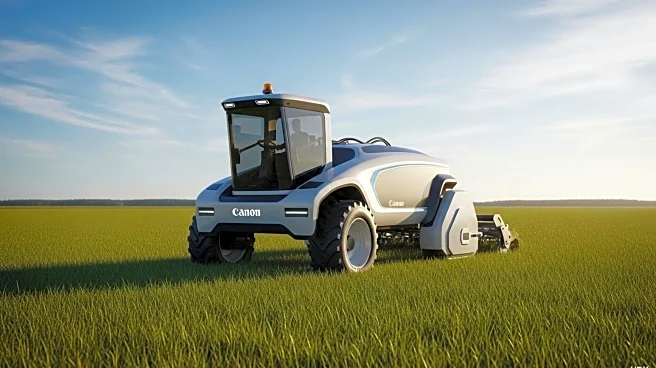What's Happening?
Christian Dreyer, co-owner and managing director of Amazone, discusses the complexities of achieving autonomy in soil work. Despite global challenges such as the war in Ukraine and supply chain issues, Amazone is experiencing growth and anticipates further revenue increases. Dreyer emphasizes the difficulty of transitioning from 2D driving to 3D soil tasks, noting that true autonomy in agriculture requires time and patience. Amazone is investing in smart, autonomous implements and larger machines, with partnerships like AgXeed aiding progress. Dreyer predicts widespread use of autonomous tractors and robots will take at least 5 to 6 more years.
Why It's Important?
The insights from Amazone's CEO underscore the technological and logistical challenges facing the agricultural industry as it moves towards automation. The slow progress in achieving full autonomy in soil work highlights the need for continued innovation and investment. This development is crucial for farmers seeking efficient and sustainable solutions, potentially transforming agricultural practices and impacting global food production. As Amazone navigates these challenges, its strategies and partnerships could set industry standards and influence future technological advancements.
What's Next?
Amazone's ongoing investment in autonomous technology suggests continued development and refinement of their products. As the company works towards overcoming the challenges of 3D soil tasks, the agricultural industry may see gradual adoption of autonomous solutions. Stakeholders, including farmers and technology developers, will likely monitor Amazone's progress, potentially leading to collaborations and innovations that accelerate the transition to autonomous farming.









